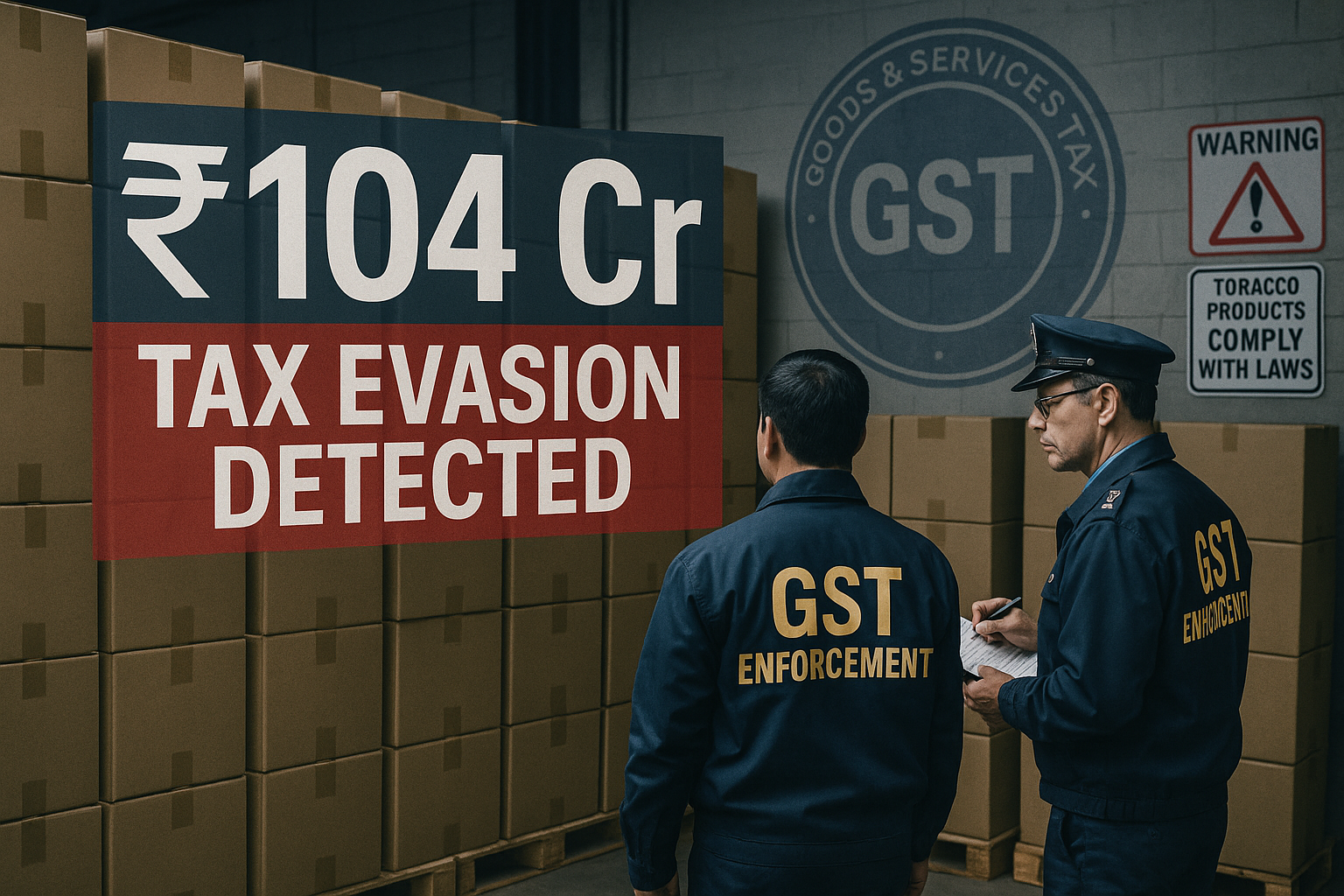GST authorities have uncovered ₹104 crore worth of tax evasion linked to the illicit tobacco trade during the first quarter of FY25, according to official data. A total of 61 cases were detected, highlighting the scale of revenue leakage in one of the most heavily taxed sectors.
The crackdown underscores the government’s commitment to tightening compliance, curbing black-market operations, and safeguarding legitimate businesses that comply with GST regulations.
Scale of the Evasion
Tobacco products attract some of the highest GST and cess rates in India, making the sector especially prone to evasion. Authorities revealed that illicit operators often avoid invoices, under-report sales, or channel products through unregistered entities to bypass tax liabilities.
The ₹104 crore detection within just three months points to systemic challenges in monitoring and enforcement, particularly in high-demand segments like cigarettes and chewing tobacco.
Enforcement Drive in Action
To counter the problem, GST officials have intensified inspections, data analytics, and cross-border tracking. Advanced digital tools are being deployed to identify mismatches in invoices, suspicious supply chains, and fraudulent GST Input Tax Credit (ITC) claims.
Officials stressed that stricter vigilance and punitive actions are essential not only for revenue protection but also to safeguard public health, as illicit tobacco often bypasses quality and safety checks.
Wider Policy Implications
Illicit trade in tobacco is not just a tax problem—it undermines public policy goals. Lower-priced illegal products reduce the effectiveness of sin taxes aimed at discouraging consumption. They also distort market competition, hurting compliant manufacturers and reducing government revenues that could otherwise be directed to welfare and health programs.
Strengthening surveillance and coordination between tax, customs, and enforcement agencies will be key to curbing the trade.
Why This Matters
The latest findings highlight the urgent need for stronger compliance measures in India’s GST regime.
For Government: Prevents significant revenue leakage in a critical sector.
For Legitimate Businesses: Ensures a level playing field against illicit operators.
For Society: Reduces access to unregulated tobacco products that pose health risks.
Effective enforcement in this sector could also serve as a model for addressing evasion in other high-risk industries.












